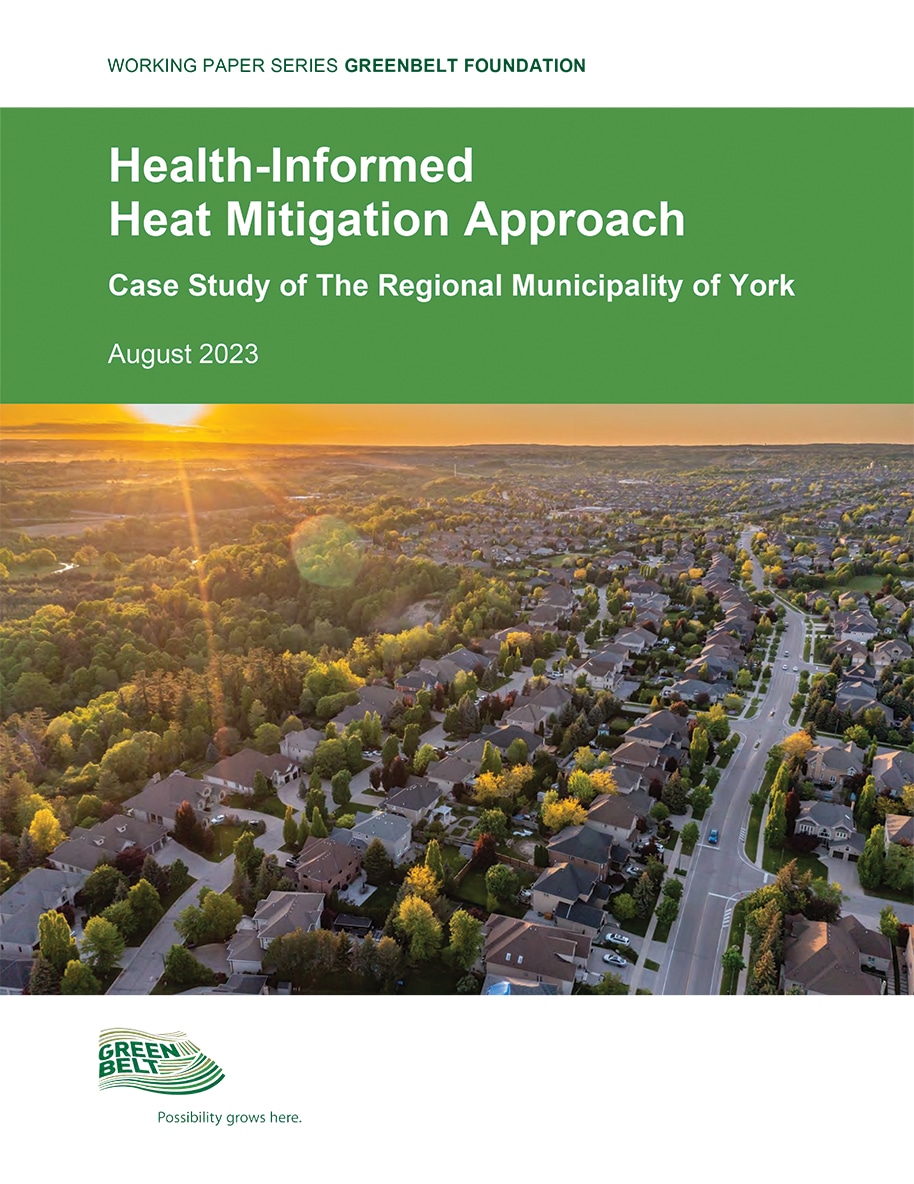The Greenbelt Foundation’s latest research report, Health-Informed Heat Mitigation Approach: Case Study of The Regional Municipality of York with University of Waterloo and Toronto Metropolitan University introduces a novel framework that emphasizes the crucial role of greenery cover in protecting people from heat stress and building environmental resilience to climate change.
The Greenbelt Foundation’s latest research report introduces a novel framework that emphasizes the crucial role of greenery cover in protecting people from heat stress and building environmental resilience to climate change.
The research, conducted in two residential neighbourhoods in York Region provides examples of economic health system savings associated with fewer ambulatory calls and emergency department visits, avoided premature mortalities, building energy savings, and avoided productivity losses.
Key findings include:
- Mitigating exposure to extreme heat results in direct economic benefits attributed to reduced use of health system services, lower energy use, and increased worker productivity.
- The estimated economic benefits include health system savings associated with fewer ambulatory calls and emergency department visits, avoided premature mortalities, building energy savings, and avoided productivity losses.
- Mitigating the impact of extreme heat under the intense greenery cover scenario provides direct economic benefits totalling 165.5 million dollars seasonally1 ($CAD 2022) because of avoided premature mortality, health system savings, lower energy use, and increased worker productivity.
- Increasing greenery cover has a significant impact on reducing the ambient air temperature and temperature-humidity index (humidex). Greater reductions in ambient temperature have been observed with greater percentages of greenery cover.
The report’s findings provide more insight into this emerging research field on the benefits of greenspaces on health. Future research and the increasing evidence of greenspace benefits will continue to broaden our understanding of how to proactively combat climate change’s adverse effects to safeguard our communities’ health and well-being.

